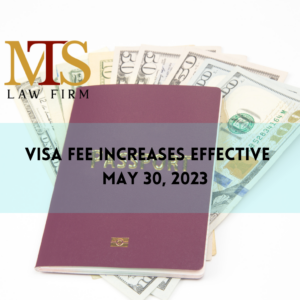Table of Contents
Family-Based Petitions
U.S. Citizens
A U.S. citizen may petition for any of the following relatives by obtaining what is often referred to as a “green card:”
- Spouse
- Unmarried child below 21 years of age
- Unmarried son or daughter 21 years of age or older
- Married son or daughter
- Parent
- Sibling
You must be at least 21 years of age to petition your parents or siblings.
The process starts by filing Form I-130, Petition for Alien Relative, with the US Citizenship & Immigration Services (USCIS) office having jurisdiction over the place of residence of the petitioner. This form seeks to establish the relationship between the petitioner and the alien beneficiary.
Lawful Permanent Residents
As a lawful Permanent Resident, whom can you petition? A lawful permanent resident may petition for the following relatives:
- Spouse
- Unmarried child below 21 years of age
- Unmarried son or daughter 21 years of age or older
Becoming a lawful permanent resident is a two-part process. The sponsoring US citizen must file a petition for your relative (Form I-130, Petition for Alien Relative) and your relative must apply for adjustment of status (using Form I-485, Application to Register Permanent Residence or Adjust Status) or for an immigrant visa through the Department of State.
Green Card for Immediate Relatives of a US Citizen
The following are the immediate relatives of a US Citizen
- IR-1 The spouse of a U.S. citizen;
- IR-2 The unmarried child under 21 years of age of a U.S. citizen; or
- IR-3 Orphan adopted abroad by a U.S. Citizen
- IR-4 Orphan to be adopted in the U.S. by a U.S. citizen
- IR-5 Parent of a U.S. Citizen who is at least 21 years old
Immediate Relatives are not subject to numerical limitations such that visa numbers are immediately available to the beneficiaries of Immediate Relatives petitions.
Green Card for Family Preference Immigrants
Other than the immediate relatives, the following relatives may apply for green card under the “Preference Immigrant” Category. These visa types are for specific, more distant, family relationships with a U.S. citizen and some specified relationships with a Lawful Permanent Resident (LPR). Family preference categories are subject to numerical limitations
- Family First preference (F1) - unmarried sons and daughters (21 years of age and older) of U.S. citizens;
- Family Second preference (F2A) - spouses and children (unmarried and under 21 years of age) of lawful permanent residents;
- Family Second preference (F2B) - unmarried sons and daughters (21 years of age and older) of lawful permanent residents;
- Family Third preference (F3) - married sons and daughters of U.S. citizens; and their spouses and minor children
- Family Fourth preference (F4) - brothers and sisters of U.S. citizens and their spouses and minor children provided the U.S. citizens are at least 21 years of age.
The sponsoring relative must file a Form I-130, Petition for Alien Relative with the USCIS, supported by documents establishing the relationship. A sponsor is required to execute an Affidavit of Support on behalf of the sponsored relative(s), which requires that the sponsor is at least 18 years old and living in the U.S.
Definition of Child Under Immigration Laws
Under immigration laws, a child can be any of the following:
- A biological child born in wedlock;
- A biological child born out of wedlock:
- A step-child, as long as the marriage creating the step-relationship occurred before the child turned 18; or
- An adopted child if the child was adopted prior to age 16 (one exception is if siblings are adopted, as long as one was under 16, the other could be older than 16 but younger than 18), AND the adopted child has resided in the legal and physical custody of the adoptive parent for 2 years prior to filing.
If the mother is petitioning, no legitimation is required;
If the father is petitioning, legitimation is required in accordance with the laws of the father or child’s place of residence; or
If the father is petitioning and the relationship is not legitimated under applicable laws, a bona fide parent-child relationship must be shown to have existed prior to the child’s 21st birthday and while the child was unmarried;
Visa for Fiancé(e)s of U.S. Citizens
A fiancé(e) visa is also known as K-1 nonimmigrant visa.
A U.S. citizen may bring his/her fiancé(e) in the United States to get married and become a legal permanent resident. The process starts with the filing of the I-129F, Petition for Alien Fiance(e), with the U.S. Citizenship & Immigration Services (USCIS). The purpose of this form is to establish that the U.S. citizen and the alien fiancé(e) are legally free to get married and that they have an ongoing relationship. Generally, the couple must have met in person within 2 years before filing of the petition, unless there is a showing of extreme hardship on the part of the U.S. citizen to personally meet the fiancé(e), or cultural restrictions to having them meet in person before marriage.
Once the I-129F petition is approved, it is sent to the National Visa Center (NVC), which forwards it to the U.S. embassy/ consulate nearest the fiancé(e)’s foreign place of residence. The U.S. embassy/consulate then sends the fiancé(e) information on how to apply for the K-1 visa, including the schedule of medical examination and visa interview. Unmarried children below 21 years old of the K-1 applicant may be included in the I-129F petition and may be eligible to receive the K-2 visa.
The alien fiancé(e) enters the United States as a nonimmigrant. The U.S. citizen and his fiancé(e) have 90 days from the time of the fiancé(e)’s entry to the United States to get married. The marriage must then be reported to the USCIS for the alien fiancé(e) (now spouse) to adjust status as a conditional permanent resident.
A U.S. citizen, may petition to bring his/her:
- Fiancé(e) (K-1 visa) and their children (K-2 visa) to the U.S. to marry his/her fiancé(e); or
- Spouse (K-3 visa) and their children (K-4 visa) to the U.S. to apply for lawful permanent resident status.
The spouse or fiancé(e) is not eligible for fiancé(e) visa under the following conditions:
- If the US citizen is already married to the fiancé(e) visa applicant
- If the US citizen and the fiancé(e) visa applicant plan to marry outside the United States
- If the fiancé(e) is already residing legally in the United States
Step by Step Process of Filing of I-129F, Petition for Alien Fiancé(e)
1
The process starts with the filing of the I-129F, Petition for Alien Fiance(e), with the U.S. Citizenship & Immigration Services (USCIS). The purpose of this form is to establish that the U.S. citizen and the alien fiancé(e) are legally free to get married and that they have an ongoing relationship.
2
After the I-129F petition is approved, it is sent to the National Visa Center (NVC), which forwards it to the U.S. embassy/ consulate nearest the fiancé(e)’s foreign place of residence
3
The U.S. embassy/consulate then sends the fiancé(e) information on how to apply for the K-1 visa, including the schedule of medical examination and visa interview. Unmarried children below 21 years old of the K-1 applicant may be included in the I-129F petition and may be eligible to receive the K-2 visa
4
The alien fiancé(e) enters the United States as a nonimmigrant. The U.S. citizen and his fiancé(e) have 90 days from the time of the fiancé(e)’s entry to the United States to get married
5
The marriage must then be reported to the USCIS for the alien fiancé(e) (now spouse) to adjust status as a conditional permanent resident.
To qualify for K-1 visa, there must be no legal impediments to marriage; the U.S. citizen and the fiancé(e) must have met in person within the past two years; and the petitioner must comply with the International Marriage Broker Regulation Act (IMBRA).
Removal of Conditions of Residence
A conditional permanent residence is a holder of a green card which is valid only for two years and may not be renewed.
An alien spouse’s conditional permanent resident status is only valid for two years and cannot be renewed if he/she:
- Received your conditional permanent resident status through marriage to a U.S. citizen or lawful permanent resident; or
- Were admitted to the United States as a fiancé(e) of a U.S. citizen and then married the U.S. citizen.
The solution is to file a petition to remove the conditions on the permanent resident status to avoid losing the lawful status.
An alien spouse who was granted conditional resident status upon marriage to a U.S. citizen or legal permanent resident must file Form I-751, Petition to Remove Conditions on Residence.
The petition is filed jointly by the alien spouse and the US citizen spouse during the 90-day period immediately before the second anniversary of the date the alien spouse was granted conditional resident status. If Form I-751 is filed on time, the alien spouse’s conditional resident status is extended until a decision is made on the application. If the petition is not filed within the 90-day period, the alien spouse automatically loses permanent residence status as of that second anniversary date and the USCIS may begin removal proceedings against him/her.
Dependent children who acquired conditional residence concurrently with the alien spouse and who entered the United States within 90 days of the alien spouse’s arrival may petition to remove conditions in the same Form I-751 of the alien spouse. However, if dependent children acquired their conditional resident status after 90 days from the date of alien spouse’s adjustment of status, or if the conditional resident parent is deceased, the dependent children will need to file a separate Form I-751.
Are you a U.S. citizen or lawful permanent resident seeking to bring your family members to the United States and help them obtain a "green card"? MTS Law specializes in providing legal representation for individuals applying for immigrant visas on behalf of their relatives.
Bringing your family to the United States is a significant process, but it can also be complex and time-consuming without professional help. Our experienced immigration lawyers understand the intricacies of family-based immigration procedure and can guide you through the entire application process.
We are committed to providing comprehensive legal representation, ensuring that your loved ones have the best chance of obtaining a Green Card and joining you in the United States.
Contact our law firm today to receive professional assistance in applying for an immigrant visa for your family members. Let us help you navigate the complex immigration process to help you reunite with your loved ones in the United States.
Disclaimer
The information presented in this section provides a general overview of the naturalization process in the United States. For accurate and up-to-date information tailored to your individual case, we recommend seeking professional assistance from MTS Law. With over 10 years of experience, our team has successfully guided clients through various aspects of immigration law, ensuring the best possible outcomes for their clients. Contact MTS Law today for comprehensive and reliable immigration legal services.
Recognized as the 'Attorney of Celebrities' since 2010
Having been known in the Filipino community for representing well known promoters, and artists, MTS Law has earned the recognition of being the “attorney of celebrities.” For over 13 years, it has been serving its clients with persistence and determination, always ready to take on tough and challenging cases to help Filipino families realize their American dream.
YELP REVIEWS
[wpyelp_usetemplate tid="1"]
Are you pleased with the service we provided? Kindly consider leaving a Yelp Review to help inform others about your experience
Latest News And Updates

Mid City Law Firm for Personal Injury Cases
May 23, 2023
Respectfully announcing the establishment of our new law firm – the Mid City Law Firm. The Mid City Firm is established as a result of

State Department Plans To Launch Program for Domestic Visa Renewal
May 15, 2023
The State Department seeks to launch a pilot program later this year offering visa renewal options in the US for H-1B specialty occupation workers and

Visa Fee Increases Effective May 30, 2023
May 15, 2023
Effective May 30, 2023, the U.S. Department of State will increase certain nonimmigrant visa (NIV) application processing fees globally. The application fee for visitor visas
SCHEDULE A FREE CONSULTATION
Tell us how we can help you
Phone: + 1 (213) 232-3154 (818) 731-2205 Fax: (213) 380-9300
Email: info@mtsangalaw.com
oFFICE ADDRESS: 3600 Wilshire Blvd. Suite 920 Los Angeles, California 90010

